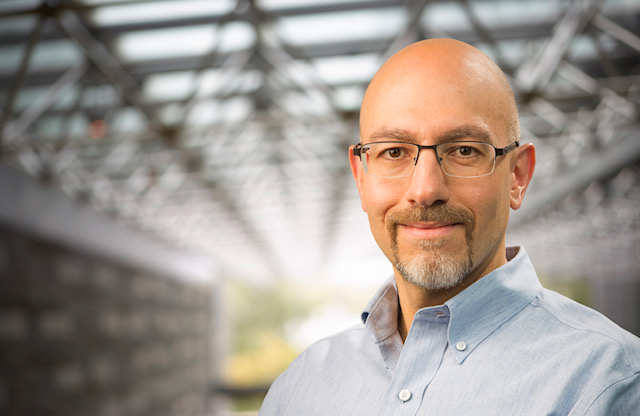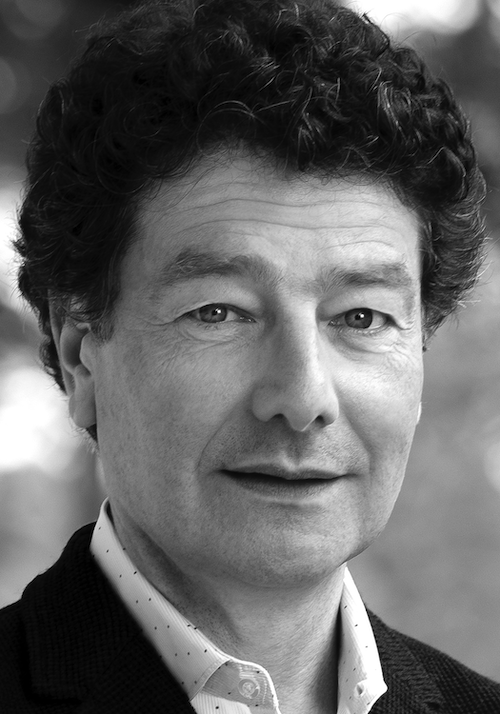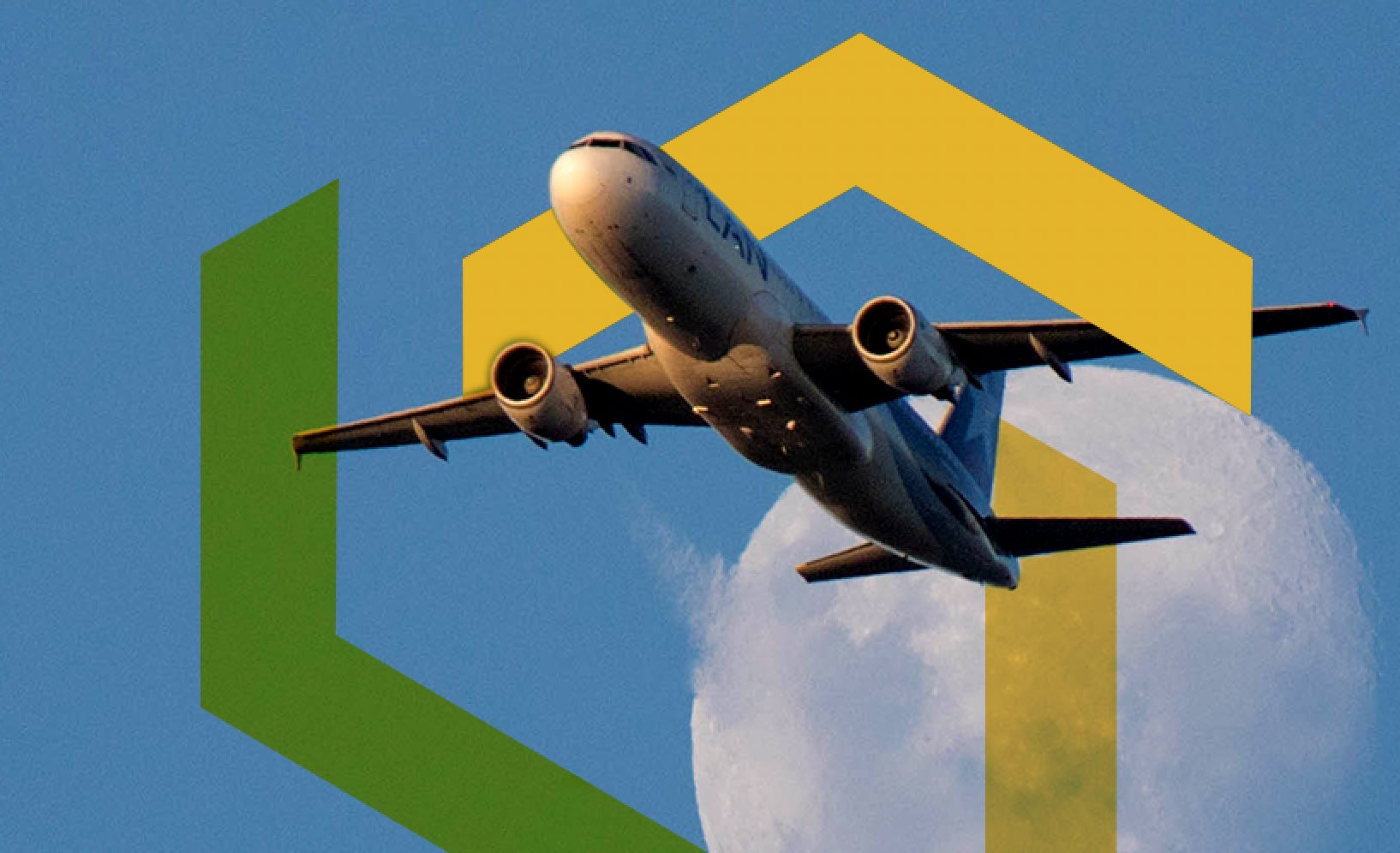Editor:
Brandon Sweet
University Communications
bulletin@uwaterloo.ca
Director of QNFCF retires

Vito Logiudice, director of the Quantum-Nano Fabrication and Characterization Facility (QNFCF).
A message from the Office of Research.
Serving as the first and only director of the Quantum-Nano Fabrication and Characterization Facility (QNFCF) since its inception, Vito Logiudice is retiring this fall (October 1) with his last day on campus set for August 5, 2022.
Vito’s story began in 2007 while working at McGill University when University of Waterloo Professor Raymond Laflamme asked him to comment on development plans for Waterloo’s proposed new cleanroom. One year later, in June 2008, Vito joined Waterloo to participate in the Mike & Ophelia Lazaridis Quantum-Nano Centre (QNC) construction project and to spearhead the design, construction, fit-out and operational rollout of its world-class nanofabrication cleanroom facility, now known as the QNFCF.
As a professional engineer with a master’s in electrical and computer engineering, Vito had worked in both industry and academia and was now responsible for building Waterloo’s “jewel.” The construction of QNC and the cleanroom presented numerous challenges, according to Vito. After delays with construction of QNC, and the necessity to build a temporary cleanroom in the Research Advancement Centre (RAC) soon after joining UWaterloo in 2008, operations finally began in QNC in 2014.
“When we opened our doors in September 2014 to our researchers it ended one of the most stressful periods of my life and it also began this incredible period of pride in what we had achieved together,” said Vito.
Vito was involved in all aspects of this project including assembling a stellar team. Reflecting on his entire career in both industry and academia, he is most proud of this team that he brought together for QNFCF. It is the team’s rare expertise and strong focus on customer service that are reflected in the success of the facility, said Vito. QNFCF is used by a tremendous cross-section of researchers from on and off campus, including Waterloo and non-Waterloo, government and industry researchers. Further, the facility logs more than 30,000 hours of use per year.
“It really is an important facility not only to enable research but also in the training of Waterloo students,” said Vito.
Throughout his time at Waterloo, Vito has met some fascinating people including Mike Lazaridis, board chair of the Institute for Quantum Computing (IQC). The greatest personal highlight in his career, however, was the opportunity to provide a personal tour of the new temporary cleanroom in the RAC building to Professor Stephen Hawking when he visited Waterloo in 2010.
Vito, his team and many great people from across campus including Plant Operations built out the infrastructure together and it has seen incredible growth over the years. Calling it a jewel for the University and Canada, Vito says he feels very good about all that has been accomplished.
“The university has done an outstanding job of supporting the whole endeavour to allow it to be what it is today,” he says.
Vito’s retirement plans are simple; he and his wife would like to tour Canada. To his successor, students, and the team he leaves behind, he shares the following words of wisdom: “Don’t let setbacks bring you down. We experience all kinds of them in life but that is what allows us to grow.”
Save the date for the 2022 Hagey Lecture by Antoni Cimolino
A message from the University of Waterloo Hagey Lectures Committee.

The University of Waterloo Hagey Lectures Committee is thrilled to announce that this year’s Hagey Lecture will be delivered by Antoni Cimolino, Artistic Director of the Stratford Festival, on October 19 in the Theatre of the Arts.
Jointly sponsored by the Faculty Association and the University, the Hagey Lectures are a free, annual series of lectures intended to challenge, stimulate, and enrich not only the faculty, staff, and students of the University of Waterloo, but also all members of the community.
Sign up for the Hagey Lectures mailing list at uwaterloo.ca/hagey-lectures to be notified when tickets are available.
Cimolino has been Artistic Director of the Stratford Festival since 2013. A champion of the arts and culture, Cimolino served as the Founding Chair of Culture Days, a nation-wide celebration of arts and culture in Canada. He has initiated collaborations with several prestigious theatre companies, including Montreal’s Théâtre du Nouveau Monde, Ottawa’s National Arts Centre, New York’s Lincoln Center and City Center, San Francisco’s American Conservatory Theater, and the Chicago Shakespeare Theater. He also spearheaded the Stratford Festival’s involvement in a joint project with CUSO International, Canada’s international volunteer co-operation agency, to establish a performing arts and educational centre in the city of Suchitoto, El Salvador.
Cimolino’s directing credits at Stratford include The Merry Wives of Windsor; The Tempest; Hamlet; The Grapes of Wrath; Coriolanus; Love’s Labour’s Lost, and Filumena. This season, he is directing Richard III and The Miser. Among his other accomplishments at Stratford, Cimolino was instrumental in establishing the Festival’s Endowment Foundation, which now stands at $81 million, as well as in the renovation of its Avon Theatre and the creation of its Studio Theatre.
Waterloo to host a summit on aviation and aerospace

The University of Waterloo and the Region of Waterloo will host a Sustainable Aeronautics Summit at the Region’s International Airport. The event will profile world-leading sustainable aeronautical research, technology, and education.
The Waterloo Institute for Sustainable Aeronautics (WISA), a university-based research institute, is leading the summit, which takes place on October 5, 2022. The event aims to bring together a unique ecosystem in the region to catalyze sustainable innovations in air transportation.
“We are very excited to work with our partners in the region, across Canada, and internationally to support the air transport sector’s transition to sustainable operations. Facing ongoing personnel, environmental, and technological challenges, sustainable solutions will be critical to a viable future,” said Suzanne Kearns, director of WISA. “One of WISA’s unique strengths is its interdisciplinary approach to aeronautical research and teaching, which includes professors and students from every corner of campus at the University of Waterloo.”
The International Air Transport Association has set a target for airlines around the world to achieve net-zero emissions by 2050.
"Achieving that goal will depend on emerging technologies and practices, which do not yet exist,” Kearns said. “It is critical for our industry to prioritize research, so leading researchers can advance these concepts from the lab to the flight line to meet sustainability goals, which can only be achieved through strategic collaborations fostered at events like this.”
Through academic, industry, and government collaborations, the summit will foster interactions to seek solutions to the most critical industry barriers in achieving social, economic, and environmental sustainability. These include environmental areas such as optimized air navigation, sustainable aviation fuels, hydrogen and electric propulsion. It will also prioritize social sustainability efforts to support a sector that has been facing widespread personnel shortages through aviation training innovations, augmented- and virtual reality, and artificial intelligence-informed instruction.
“Our airport has been growing, with increasing airline traffic as well as student training at the Waterloo Wellington Flight Centre,” said Rod Regier, Commissioner of Planning, Development, and Legislative Services at the Region of Waterloo. “However, we must also prioritize sustainability solutions associated with that growth. Through partnerships with WISA, we believe we have the potential to become a global hub for aeronautical sustainability. Events like this summit help us create new opportunities and innovations to benefit aviation and aerospace sustainability.”
The one-day Sustainable Aeronautics Summit to be held on October 5, 2022, at the Region of Waterloo International Airport’s Operations Centre will include a full educational program with world-leading speakers, including Commander Chris Hadfield, as well as a trade show. Speakers will highlight new and emerging innovations in social, environmental, and economic sustainability in air transportation.
To register, please visit the Sustainable Aeronautics Summit website.
Nominate someone for a Catalyst feature article for Latin American Heritage Month
A message from the Department of Spanish and Latin American Studies.
Do you know any outstanding undergraduate or graduate students, staff or faculty members from a Latin American background who should be recognized for the exceptional work they do? Nominate them to be featured in the upcoming celebration of the Latin American Heritage Month in October.
The Department of Spanish and Latin American Studies and the Equity, Diversity, Inclusion and Anti-racism Office are working on a series of pieces in The Catalyst Anti-racism Newsletter spotlighting the outstanding contributions made by UWaterloo students, staff and faculty of Latin American background.
Email nominations to a2bilode@uwaterloo.ca by July 30. The University of Waterloo Anti-racism Communications Office will contact them directly.
Student voting begins as WUSA enacts governance changes

Student election season has come early—or late, depending on your point of view—as undergraduate students go to the polls to elect their representatives for an abbreviated term that begins on September 1 of this year.
Why now, you may ask? The summer election has come about as the Waterloo Undergraduate Student Association has enacted sweeping changes to its governance structure after a review period that started in the fall 2021 term. The organization's new bylaws, adopted at a special general meeting of WUSA's membership in June 2022, contain within them the most comprehensive changes to campus student governance in a generation.
The Students' Council, a representative body that is older than WUSA (previously the Federation of Students) itself and one that has existed in some form or another for more than 60 years, will be no more as the new bylaws come into force on September 1, 2022. Also disappearing will be several of the student vice-presidential positions governing areas like operations and finance, education, and student life.
WUSA's bicameral governance structure, consisting of the Students' Council with members elected from faculty-based constituencies and representation from the Affiliated and Federated Institutions of Waterloo as well as satellite campuses, and a Board of Directors that makes final fiscal and operational decisions and keeps the elected student executives accountable (mirroring in many ways the University's bicameral governance structure) will be replaced with a single 11-member Board of Directors elected from all University undergraduate students, a President and a Vice-President.
Reasons for the governance change include the increasing size and complexity of the student organization as well as its membership (undergraduate students at Waterloo). WUSA executives worked with consultants who had expertise in student association structure and governance to come up with recommendations to change the organization's bylaws to streamline its policies and procedures, promote transparency and accountability, and improve the organization's accessibility and responsiveness.
The WUSA General Election campaign period began on Sunday, July 17. Voting runs until July 28 and results are expected to be announced after the long weekend on Tuesday, August 2. Check out the list of candidates on WUSA's website. The executive and Directors will serve an 8-month term of office for 2022-2023; and subsequent terms will be one year in length.
Links of the day
David Warner, 1941-2022 and Paul Sorvino, 1939-2022
When and Where to get support
Students can visit the Student Success Office online for supports including academic development, international student resources, immigration consulting, leadership development, exchange and study abroad, and opportunities to get involved.
Instructors looking for targeted support for developing online components for blended learning courses, transitioning remote to fully online courses, revising current online courses, and more please visit Agile Development | Centre for Extended Learning | University of Waterloo (uwaterloo.ca).
Instructors can visit the Keep Learning website to get support on adapting their teaching and learning plans for an online environment.
Course templates are available within your course in LEARN to help you build and edit your content and assignment pages quickly.
The following workshops, webinars, and events are offered by the KL team (CTE, CEL, ITMS, LIB):
-
Scholarship of Teaching and Learning (SoTL) Methods – self-directed, continuous self-enrollment course in LEARN.
-
Independent Blended Course Design (iBlend) - self-directed, continuous self-enrollment course in LEARN.
-
Copyright Overview for Waterloo Instructors and Staff - self-directed, continuous self-enrollment course in LEARN.
-
Independent Remote Course Design Essentials (iReCoDE) - self-directed, continuous self-enrollment course in LEARN.
-
Supporting Student Mental Health (for Instructors) – self-directed, continuous self-enrollment course in LEARN.
Supports are available for employees returning to campus. Visit IST’s Hybrid Work and Technology guidelines and workplace protocols to assist with the transition.
The Writing and Communication Centre has in-person and virtual services to support grad and undergrad students, postdocs and faculty with any writing or communication project. Services include one-to-one appointments, drop-ins at Dana Porter Library, online workshops, writing groups, English conversation practice, and custom in-class workshops.
Co-op students can get help finding a job and find supports to successfully work remotely, develop new skills, access wellness and career information, and contact a co-op or career advisor.
The Centre for Career Action (CCA) has services and programs to support undergrads, grad students, postdocs, alumni, and employees in figuring out what they value, what they’re good at, and how to access meaningful work, co-op, volunteer, or graduate/professional school opportunities. Questions about CCA's services? Live chat, call 519-888-4047, or stop by our front desk in the Tatham Centre 8:30 a.m. to 4:30 p.m., Monday to Friday.
Drop-in to Warrior Virtual Study Halls on Wednesdays from 5:30 p.m. to 7:00 p.m. Come together in this virtual space to set goals and work independently or in groups each week.
Renison's English Language Institute continues to offer virtual events and workshops to help students practice their English language skills.
If you feel overwhelmed or anxious and need to talk to somebody, please contact the University’s Campus Wellness services, either Health Services or Counselling Services. You can also contact the University's Centre for Mental Health Research and Treatment. Good2Talk is a post-secondary student helpline available to all students.
The Library is open with expanded hours for access to book stacks, drop-in individual study space, bookable group study rooms, drop-in access to computers and printers, book pick-up services and IST Help Desk support. Librarian consultations, Special Collections & Archives and the Geospatial Centre are available by appointment. Full details on current services and hours are available on the Library’s COVID-19 Update webpage.
The Faculty Association of the University of Waterloo (FAUW) continues to advocate for its members. Check out the FAUW blog for more information.
The University of Waterloo Staff Association (UWSA) continues to advocate for its members. Check out the UWSA blog for more information.
The Sexual Violence Prevention and Response Office (SVPRO) supports all members of the University of Waterloo campus community who have experienced, or been impacted, by sexual violence. This includes all students, staff, faculty and visitors on the main campus, the satellite campuses, and at the affiliated and federated Waterloo Institutes and Colleges. For support, email: svpro@uwaterloo.ca or visit the SVPRO website.
The Office of Indigenous Relations is a central hub that provides guidance, support, and resources to all Indigenous and non-Indigenous campus community members and oversees the University's Indigenization strategy.
The Waterloo Indigenous Student Centre, based at St. Paul’s University College, provides support and resources for Indigenous students, and educational outreach programs for the broader community, including lectures, and events.
WUSA supports for students:
Peer support - MATES, Glow Centre, RAISE, Women’s Centre - Click on one of the links to book an appointment either in person or online for the term.
Food Support Service food hampers are currently available from the Turnkey Desk 24/7 in the Student Life Centre. Drop-off locations are also open again in SLC, DC, DP, SCH, and all residences.
Co-op Connection all available online.
Centre for Academic Policy Support - CAPS is here to assist Waterloo undergraduates throughout their experience in navigating academic policy in the instances of filing petitions, grievances and appeals. Please contact them at caps@wusa.ca.
WUSA Student Legal Protection Program - Seeking legal counsel can be intimidating, especially if it’s your first time facing a legal issue. The legal assistance helpline provides quick access to legal advice in any area of law, including criminal. Just call 1-833-202-4571.
Empower Me is a confidential mental health and wellness service that connects students with qualified counsellors 24/7. They can be reached at 1-833-628-5589.
GSA-UW supports for graduate students:
The Graduate Student Association (GSA-UW) supports students’ academic and social experience and promotes their well-being.
Advising and Support - The GSA advises graduate students experiencing challenges and can help with navigating university policies & filing a grievance, appeal, or petition.
Mental Health covered by the Health Plan - The GSA Health Plan now has an 80 per cent coverage rate (up to $800/year) for Mental Health Practitioners. Your plan includes coverage for psychologists, registered social workers, psychotherapists, and clinical counselors.
Dental Care - The GSA Dental Plan covers 60 to 70 per cent of your dental costs and by visiting dental professionals who are members of the Studentcare Networks, you can receive an additional 20 to 30 per cent coverage.
Student Legal Protection Program - Your GSA fees give you access to unlimited legal advice, accessible via a toll-free helpline: +1-833-202-4571. This advice covers topics including housing disputes, employment disputes, and disputes with an academic institution.
The Graduate House: Open Monday to Tuesday 11:30 a.m. to 7:00 p.m. and Wednesday to Friday 11:30 a.m. to 9:00 p.m. We’re open to all students, faculty, staff, and community members. The Graduate House is a community space run by the GSA-UW. We’re adding new items to the menu. Graduate students who paid their fees can get discounts and free coffee.
When and Where (but mostly when)
Warriors vs. Laurier Blood Donation Battle. Join our “Waterloo Warriors” team on the Blood.ca website or app. #ItsInYouToGive
Warriors Youth Summer Day Camps, July 4 to September 2. Open to boys and girls age 5-18. Baseball, Basketball, Football, Hockey, Multi-Sport and Games & Volleyball. Register today.
UWSA vote on Updated Memorandum of Agreement (MOA), Thursday, July 14 to August 2, details and vote link sent to members by email, contact UWSA for details.
WaterTalk: Extreme gas pressures in lakes: From the "killer" Lake Nyos to Guadiana Pit Lake and Lake Kivu, presented by Bertram Boehrer. Tuesday, July 26, 1:00 p.m., DC 1302.
Pivot-RP training webinar for Faculty and graduate students, Tuesday, July 26, 2:00 p.m. to 3:00 p.m. via MS Teams.
Shad Waterloo 2022 Open Day Exhibits, Thursday, July 28, 1:30 p.m. to 4:00 p.m.
August Civic Holiday, Monday, August 1, most University operations and buildings closed.
FLIGHT Virtual Summer Camp, Tuesday, August 2 to August 13. FLIGHT virtual summer camp provides a strong introduction to tech entrepreneurship to girls aged 13-18 who self-identify as Black or another underrepresented minority.
Part-Time Master of Business, Entrepreneurship and Technology Information Session, Wednesday, August 3, 12:00 p.m. to 1:00 p.m., Zoom. Registration required.
2022 Global Summit: Nanotechnology for a Healthier and Sustainable Future, Wednesday, August 10 and Thursday, August 11.